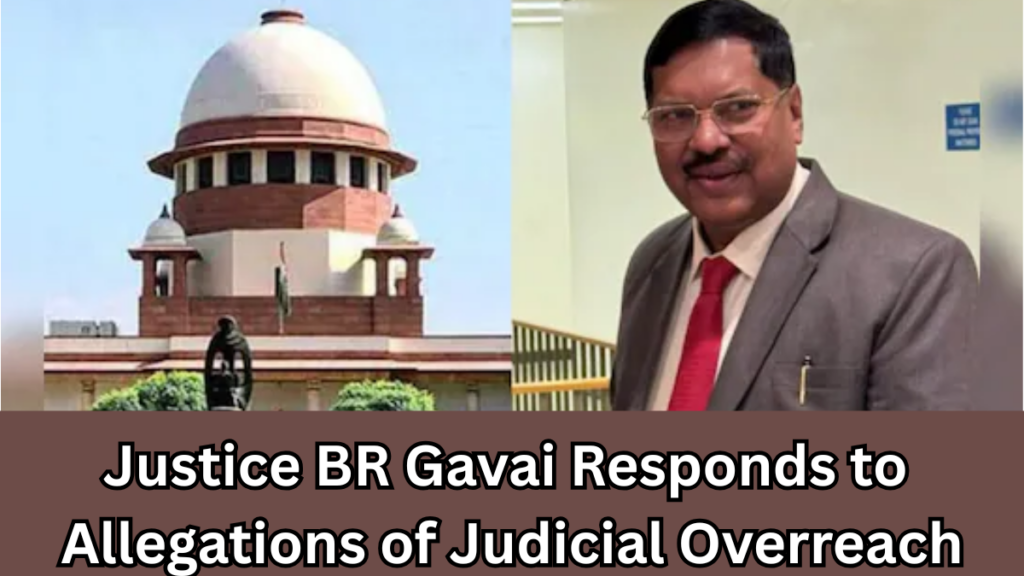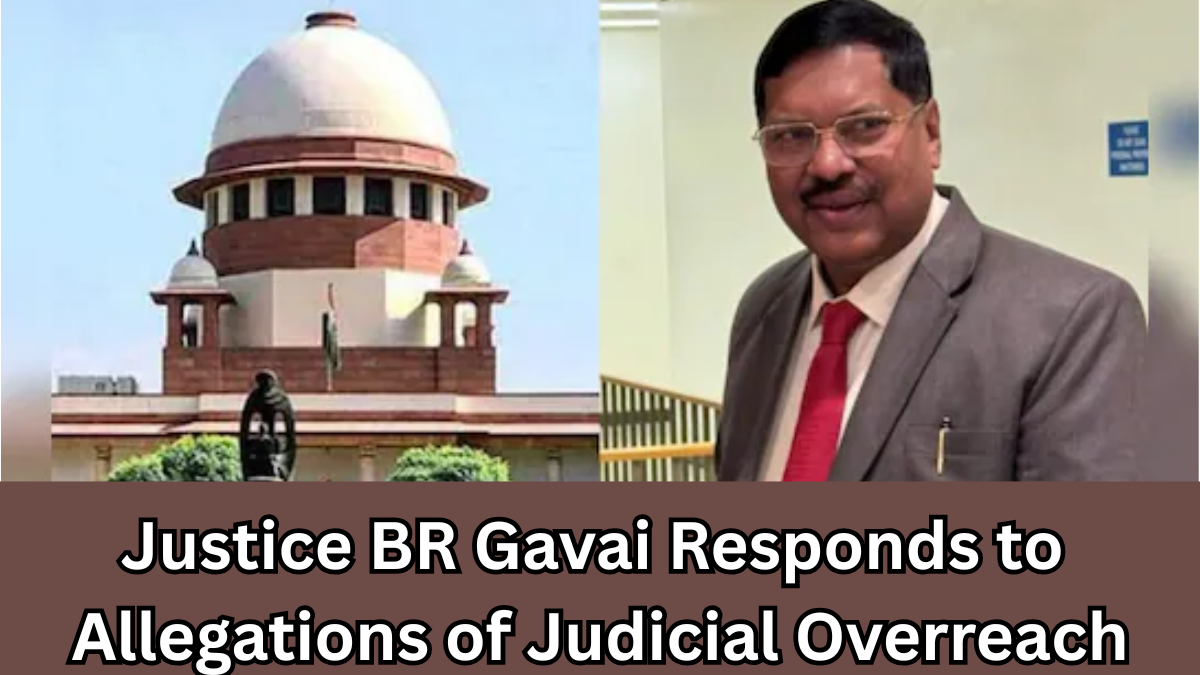As India’s highest judicial body grapples with criticism from a section of political leaders, a striking comment from Justice BR Gavai—who is set to become the next Chief Justice—sheds light on the tensions simmering between the judiciary and the executive.

Backdrop: Judiciary vs. Executive Tensions
The controversy stems from the Supreme Court’s recent ruling that compelled the President and state Governors to act within a reasonable timeframe on Bills passed by legislatures. While the decision was hailed as a move to uphold legislative democracy, some leaders of the ruling BJP were not pleased.
Justice BR Gavai, in a sharp but composed remark, said:
“As it is, we are facing allegations of encroaching into the executive domain.”
This was in response to a lawyer requesting the court to direct the Centre to intervene in recent violence in West Bengal.
The West Bengal Violence Petition
Advocate Vishnu Shankar Jain mentioned his long-pending plea related to post-poll violence in Bengal. Recently, he filed a fresh request to:
-
Deploy paramilitary forces in sensitive areas
-
Appoint a panel of three retired judges to investigate the violence
-
Submit a report on Hindu displacement from Murshidabad
However, the bench was reluctant to intervene in executive functions. Justice Gavai reminded the lawyer that such moves could deepen allegations of overreach.
Judicial Overreach or Constitutional Duty?
The latest Supreme Court judgment—linked to Tamil Nadu’s standoff with its Governor—clarified that Governors cannot indefinitely sit on Bills. The Court invoked Article 142, stating:
| Judicial Insight | Details |
|---|---|
| Judgment Focus | Governors cannot withhold Bills indefinitely |
| Article Used | Article 142 – Special powers to do “complete justice” |
| Bench | Justices JB Pardiwala and R Mahadevan |
| Key Message | Only courts can rule on the constitutionality of a Bill |
Political Backlash: BJP Voices Its Anger
Several BJP leaders openly lashed out at the Supreme Court after the ruling.
Notable Reactions:
-
Nishikant Dubey (BJP MP):
-
“If the Supreme Court decides everything, Parliament should shut down.”
-
Accused the court of triggering religious tensions.
-
-
Dinesh Sharma (BJP Leader):
-
“The President is supreme; you cannot dictate to the appointing authority.”
-
-
Jagdeep Dhankhar (Vice-President):
-
Called Article 142 a “nuclear missile” being used against democratic institutions.
-
BJP Backpedals: Statements Are ‘Personal’
Caught in the whirlwind of criticism and political pressure, the BJP tried to distance itself from its own MPs.
BJP President JP Nadda’s Statement:
“These are personal statements. The BJP neither agrees with nor supports such remarks. We completely reject them.”
This move came after several Opposition leaders accused the ruling party of systematically undermining judicial independence.
What’s at Stake?
This tug-of-war between the judiciary and the executive highlights key concerns:
-
Separation of Powers is being tested in real-time.
-
Public trust in democratic institutions is at stake.
-
Judicial independence may come under pressure if political attacks continue unchecked.
FAQs
1. Why did Justice BR Gavai’s comment draw attention?
Justice Gavai’s remark reflects the judiciary’s awareness of criticism about alleged overreach. As he prepares to take charge as the Chief Justice, his statement indicates a cautious stance amid political scrutiny.
2. What is Article 142, and why is it important?
Article 142 of the Constitution gives the Supreme Court special powers to ensure “complete justice.” It’s often invoked in cases where no clear legal remedy exists but justice demands intervention.
3. Why are BJP leaders upset with the Supreme Court?
The Court’s judgment restricting Governors’ ability to indefinitely delay Bills was seen by some BJP leaders as judicial interference in executive matters. They believe it undermines parliamentary sovereignty.
4. What is the BJP’s official stance on its MPs’ controversial remarks?
The BJP has publicly disowned the comments made by its MPs, calling them personal opinions and not representative of the party’s official stance.
Click here to learn more
Pari is a passionate writer known for captivating stories that blend imagination and reality. Inspired by travel, history, and everyday moments, Pari crafts narratives that resonate deeply with readers.




